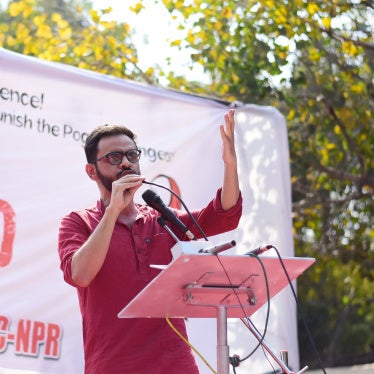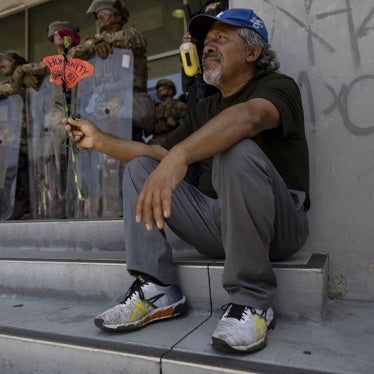The latest addition to the Taliban hit list are two of Afghanistan’s largest TV channels: 1TV and TOLO News. On October 12, the Taliban issued a statement on its website disputing a recent report by the two channels and said that the outlets’ employees were now “enemy personnel” who would be “considered military objectives” to be “directly eliminated.”
It’s an alarming new low, even for the Taliban, who have long threatened and killed journalists and other civilians. “Henceforth no employee, anchor, officer, news team and reporter of these TV channels holds any immunity,” the statement reads.
Under international law, treating journalists and other civilians as military targets and deliberately attacking them constitutes a war crime.
The statement comes from the Taliban’s military commission, which runs the group’s military operations and has routinely targeted civilians, including teachers, judges, civil servants, interpreters, and activists. With their prolific social media presence and sophisticated media engagement, the Taliban have tried to project a media-friendly image. This statement unequivocally shatters that.
TOLO News and 1TV are among the most-watched networks in Afghanistan, often broadcasting heated talk shows, hard-hitting investigative reports, and breaking news from the front lines of the conflict. They are part of a media boom in Afghanistan that many consider among the country’s major recent achievements.
However, that achievement is increasingly under threat. Human Rights Watch has found that Afghan journalists are threatened and attacked by people on all sides of the conflict. Independent monitoring organizations have found that government officials and pro-government individuals and groups are responsible for the vast majority of the threats and violence against journalists. Apart from rare exceptions, the Afghan government has failed to investigate or prosecute incidents of violence against journalists. The government has also significantly restricted the media, unlawfully interrogated journalists and blocked them from reporting from certain areas.
In the face of this new threat from the Taliban, journalists from both networks remain defiant and have vowed in posts on Facebook to continue reporting. “I will never cave into any pressure,” wrote one journalist on their Facebook page. “My voice for justice will become stronger and my pen will continue to document and write about crimes and violations of human rights. It will not waver.”
The Taliban’s claim of having the “utmost respect for independent and impartial news outlets” rings hollow when they threaten to target journalists for their work. They should publicly rescind their threat against the TV stations’ employees and acknowledge that negative coverage is no justification for targeting civilians.









